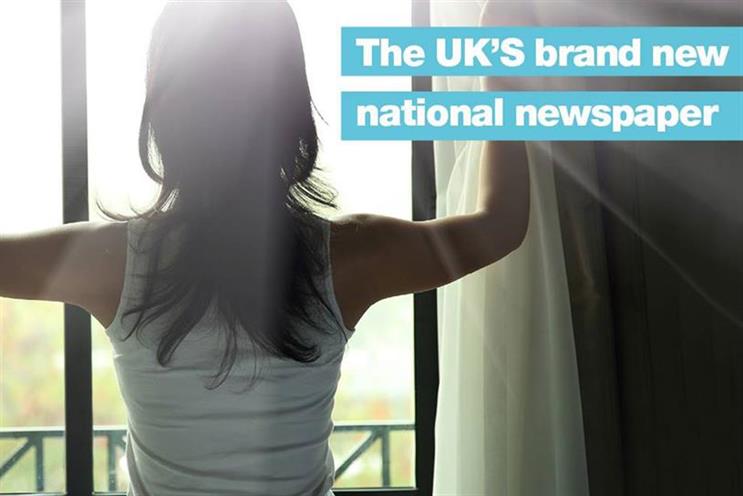What a waste. The New Day was meant to prove there was growth in the print newspaper market and demand for a lite, easy read.
But guess what? No one wants a limp, weak paper, with little editorial investment behind it, a skeleton staff, and no worldview or purpose – beyond a vague appeal to older women.
Readers certainly weren't going to pay 50p a day. And it looked doomed from its anodyne, debut issue.
The fact that The New Day had virtually no web or social media presence only underlined just how wrongly conceived this supposedly innovative, new editorial product was in 2016. (Trinity Mirror insists the paper had "a strong following on Facebook".)
In an ironic twist, The New Day was trending at number two on Twitter this morning, with 130,000 tweets.
Finally, this features-led paper was making news – for the wrong reasons.
The wonder is that The New Day lasted even ten weeks on the news stand.
Print circulation had slumped to an unsustainable level below 40,000 within just a couple of weeks of its 29 February launch – just 20 per cent of its 200,000 target.
The bosses at Trinity Mirror, a publisher with a history of groundbreaking, popular journalism under leaders such as Hugh Cudlipp, should feel ashamed because they could have done so much better than this.
Simon Fox, the chief executive, and James Wildman, the chief revenue officer, are two of the nicer people you could hope to meet in media.
But niceness isn't going to sell papers or attract readers.
David Grigson, the chairman and a wise old bird who used to work at Emap and Reuters, should have told them that. Instead he will be reading the last rites for the paper at the shareholders' annual meeting today.
Trinity Mirror insists it picked up lots of "new insights" from The New Day and learnt how it could produce a national newspaper with far fewer staff.
The Mirror national titles have upwards of 300 staff. The New Day had 25.
But a paper or news brand that no one wants is worthless.
It looked from the signals emanating from Trinity Mirror HQ that if The New Day succeeded, Fox planned to reduce editorial staff further across the group. Let's hope he thinks twice now.
The strategy behind The New Day wasn't entirely dumb.
Charging 50p a day meant it could reduce reliance on ad revenue and, by using a fixed editorial layout, with only eight, daily ad slots, costs were lower.
But the product still needed to be good.
Super early editorial deadlines might have made use of Trinity Mirror's idle printing presses but the newspaper felt stale, especially when compared to its competitors from Metro and i to the Daily Mail and The Sun.
Not having the football results from evening matches was just one example of how the paper felt more like The Old Day.
Relegating advertising to only a couple of full pages towards the back of the book also sent out a message to brands and agencies that the publisher didn't care much about them.
Other news organisations have been eager to point out The New Day's weaknesses.
I could have written a story practically every day over the last ten weeks about The New Day's woes, based on the poison being dripped in my ear.
But rival publishers aren't gloating much about The New Day's demise because they know it casts a shadow over the wider newspaper industry, which has been suffering double-digit percentage falls in print advertising in the last 12 months while online traffic is gobbled up by Facebook.
Trinity Mirror today admitted its own print ad revenue crashed 19 per cent in the first quarter of 2016.
"Don't say it's bad for the medium," pleaded a senior executive at a rival publisher, after hearing about The New Day's closure.
In one sense, it is undeniably bad for the print medium.
Trinity Mirror had complained ahead of the launch about the lack of innovation in the newspaper market and this feeble title is the best that it could produce.
Yet in another way, the death of The New Day is good for journalism.
It shows readers, and advertisers, won't pay for dross. They do care, particularly about print, which remains an engaging medium.
And they want quality and originality.



